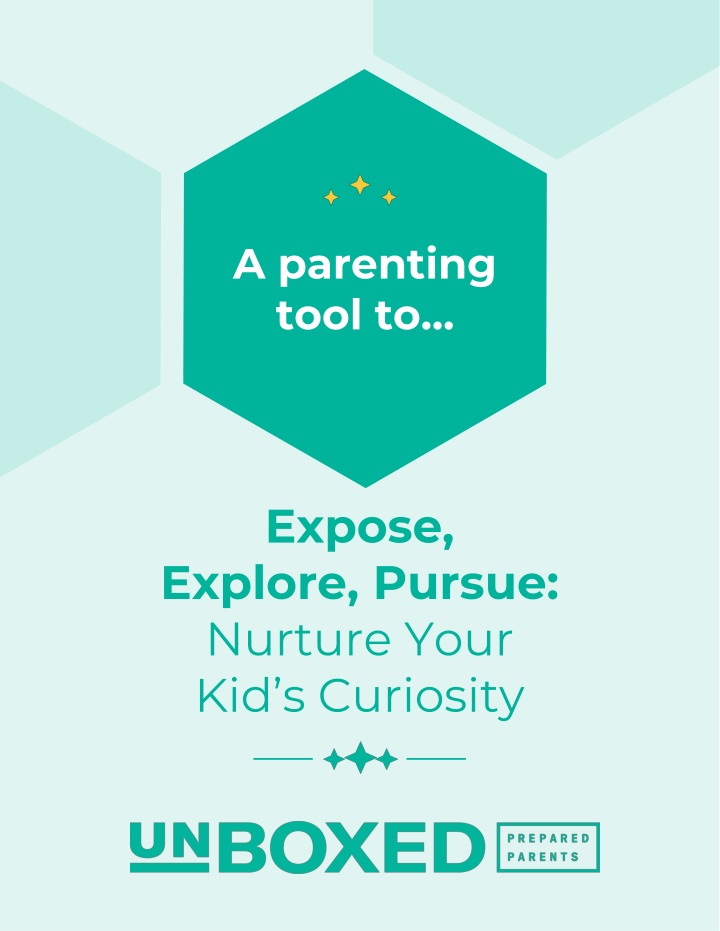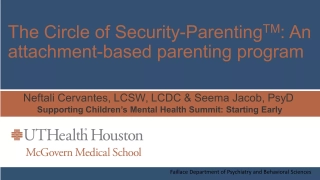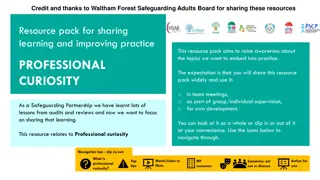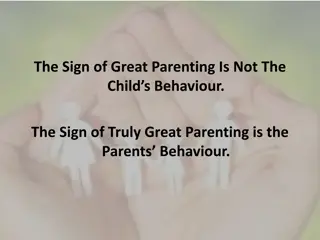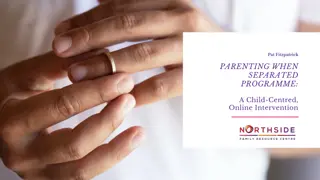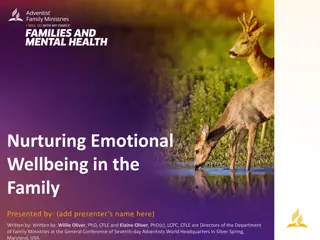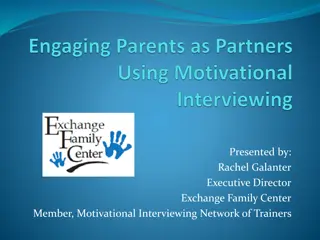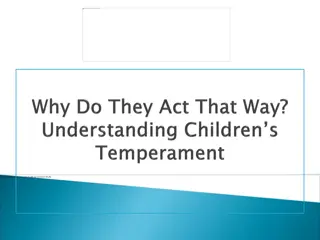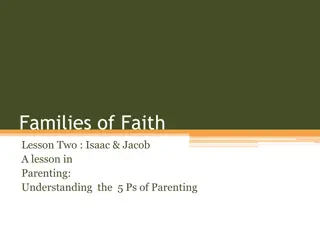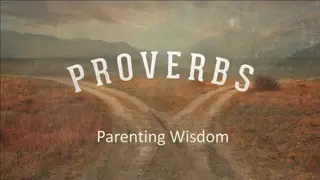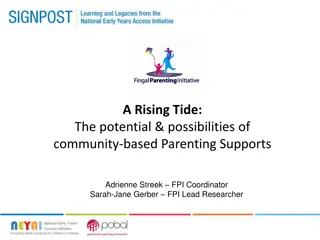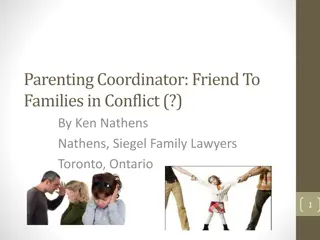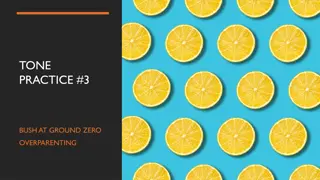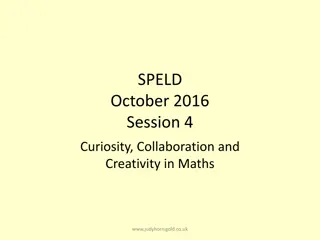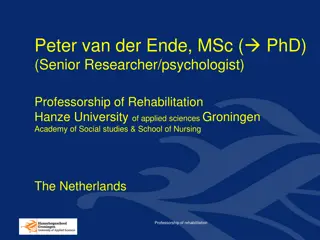Nurturing Your Kid's Curiosity: A Parenting Tool
Inspire and guide your child to explore their curiosity with the Expose, Explore, Pursue method. Learn why curiosity is crucial for finding purpose and how to encourage and support your child in following their passions. Discover five ways to nurture your child's authentic curiosity and help them develop into independent thinkers.
Download Presentation

Please find below an Image/Link to download the presentation.
The content on the website is provided AS IS for your information and personal use only. It may not be sold, licensed, or shared on other websites without obtaining consent from the author.If you encounter any issues during the download, it is possible that the publisher has removed the file from their server.
You are allowed to download the files provided on this website for personal or commercial use, subject to the condition that they are used lawfully. All files are the property of their respective owners.
The content on the website is provided AS IS for your information and personal use only. It may not be sold, licensed, or shared on other websites without obtaining consent from the author.
E N D
Presentation Transcript
A parenting tool to... Expose, Explore, Pursue: Nurture Your Kid s Curiosity
Inspire your kid to follow their curiosity Curiosity can take your kid far. Brody, a 10th grader from San Ramon, California (pictured above), was fascinated by roller coasters even before he had ridden one. When he was eight years old, he asked for a K NEX kit for his birthday and with lots of help from his parents, assembled his first of many models. Soon his mom was searching for used sets to keep up with his building fervor, and his dad was spending weekends with him riding roller coasters together. It s been eight years since he constructed that first model, and Brody continues to pursue his curiosity and passion. He is learning about architecture, construction, and safety while also gaining important knowledge in physics, math, design, policy, and history and his joy in this learning is palpable. He finds purpose in his learning and that energy continues to drive him today. Following your kid s curiosity is about Exposing them to new opportunities, Exploring the ones that spark interest, and Pursuing the ones that could be deep passions. preparedparents.org 2
How to help your kid follow their curiosity Why is curiosity important? Curiosity is the first step of your kid finding the things they re deeply interested, which can lead to finding purpose. It s not about what they want to do for college or career, it s about figuring out who they are, what they care about, and what impact they want to have on the world. It takes time, but through exposure and exploration, you can help your kid narrow down and pursue their deepest interests. How can I encourage my kid to follow their curiosity? At Prepared Parents, we use a process called Expose, Explore, Pursue to help get our kids from curiosity to pursuit and purpose. Expose your kid to new opportunities, Explore the interests that spark excitement, then support them as they Pursue those few interests that really click. Expose your kid to new experiences. While it may be tempting to load up your kid s schedule with lots of productive activities, kids need downtime to be curious. Find those one or two things your kid is curious about and explore free or low-cost events in your community to give your kid low-stakes opportunities to try out interests. Explore the interest that spark excitement. When an activity really sparks curiosity, help your kid dig deeper beyond the first experience. This is where longer-term commitments come in: designing a project, taking classes, or attending a camp. Make sure to have explicit conversations with your kid to confirm an interest in devoting time and energy to this new exploration. Pursue the interests that really click. As your kid explores interests, help them narrow down to the ones they get really excited about. Could this be a summer project, internship, or even college major? Help your kid work through the different paths that could be a good next step. preparedparents.org 3
5 ways to nurture curiosity As you kick off Expose, Explore, Pursue to help your kid find and explore their interests, consider these five ways to nurture your kid s authentic curiosity. 1. Give your kid downtime. It may be tempting to sign your kid up for lots of different activities in an effort to help them discover what they truly want to pursue, but it s better to avoid the packed schedule. Unstructured downtime helps kids become creative, independent thinkers, and it s a great time to explore new interests. 2. Make observations and ask questions. What are the activities that capture your kid s attention? What do they enjoy doing? Are there books, movies, or TV shows that push them to want to know more? At Prepared Parents, we call these your kid s INGs the things they like doING. Download our INGs Tool for insights on discovering your kid s INGs. 3. Don t break the bank. Exploring what your kid wants to learn more about doesn t need to be expensive. What s your budget? Are there free or low-cost classes, fairs, or events to sign up for? One inexpensive resource is right in your living room: the Internet, the most powerful tool available in the quest to expose kids to possible passions. 4. Go deeper. As curiosity about a thing deepens, decide together how much of an investment of time and money to make in helping your kid pursue it. Drama camp during the summer? Visits to museums and exhibits? An internship or volunteering? Making an investment of your resources in supporting your kid s passion can pay off in their finding their identity and purpose in life. 5. Model curiosity and co-discover. Explore your own curiosity and interests. When your kid sees you actively learning, they re encouraged to do the same. Collaborate with your kid to seek answers to questions about their interests and your own. Use the following your curiosity activity on the following page to help your kid explore a new interest. Questions? Write to us at info@preparedforsuccess.org. preparedparents.org 4
Following your curiosity activity Use this worksheet to explore a new interest. Use extra paper if needed. 1. What is your new interest? ______________________________________________________________________ ______________________________________________________________________ 2. How did you discover this new interest? ______________________________________________________________________ ______________________________________________________________________ ______________________________________________________________________ 3. What would you like to learn about this new interest? ______________________________________________________________________ ______________________________________________________________________ ______________________________________________________________________ 4. What resources, such as books, videos, or articles will you use to learn? ______________________________________________________________________ 5. Are you interested in further pursuing this interest through a larger project? If so, consider creating a real-world learning project at home. preparedparents.org 5
